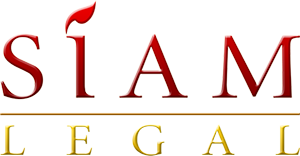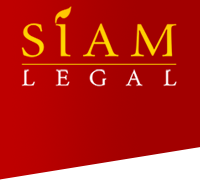Import/Export Companies and Tax Implications for Defective Goods
A common problem faced by import/export companies is when goods that are ordered from overseas turn out to be defective. International traders in Thailand should be aware that there are tax implications arising under the Revenue Code regarding their defective stock. Further guidance is provided in Revenue Department Advisory Opinion No. Gor Kor. 0702/8141 issued on September 16, 2013. The facts were that Company TH, operating in Thailand, was engaged in the import and export of food supplements and health-enhancing foods. The goods were imported from Company DK in Denmark and passed through customs procedures. Some of the goods sent by Company DK were defective or unacceptable for one reason or another and Company TH was unable to sell them. However, Company DK offered to accept returns of the defective goods in exchange for replacements or to send a credit note without having to return the defective goods. Company TH required clarification on the following issues:
- If Company TH distributes the defective goods as free samples to its customers, does Company TH have to include the value of the defective goods when calculating the payment of value-added tax (VAT) under Section 82/3 of the Revenue Code (i.e., VAT = Output Tax – Input Tax)?
- Are the expenses incurred by Company TH in returning the defective goods prohibited from being considered as a business expense according to Section 65 ter (13) of the Revenue Code (i.e., “an expense not for the purpose of making profits or for the business”)?
The Revenue Department was of the following opinion:
- If Company TH does not return the defective goods to Company DK, the defective goods are considered to be goods belonging to Company TH. Therefore, if Company TH distributes the defective goods to its customers as free samples, it would be considered a sale of goods according to Section 77/1(8) of the Revenue Code and the value of the defective goods must be included when calculating payment of VAT according to Section 82/3 of the Revenue Code. However, this rule does not apply if the free samples are distributed along with an actual sale of goods and the value of the free samples do not exceed that of the goods sold. In such a case, the value of the free samples do not have to be included when calculating payment of VAT by authority of Sections 2(1) and (2) of the Notification of the Director-General of the Revenue Department (No. 40) issued on August 26, 1992 pursuant to Section 79(4) of the Revenue Code.
- If the facts are that Company TH has a duty to return the defective goods and there is supporting evidence that Company TH incurred expenses in returning the defective goods, then such expenses may be considered businesses expenses when calculating net income and shall not fall within the scope of Section 65 ter (13) of the Revenue Code.
Import/export companies in Thailand face complex legal implications. Therefore, it is always advised that competent legal counsel be retained when operating business.
Category: Administrative Law
About the Author (Author Profile)
Siam Legal is an international law firm with experienced lawyers, attorneys, and solicitors both in Thailand law and international law. This Thailand law firm offers comprehensive legal services in Thailand to both local and foreign clients for Litigation such as civil & criminal cases, labor disputes, commercial cases, divorce, adoption, extradition, fraud, and drug cases. Other legal expertise of the law firm varied in cases involving corporate law such as company registration & Thailand BOI, family law, property law, and private investigation.











